There have been Baptists in Morton, Hanthorpe, Haconby and Stainfield since the mid 17th century.
Below, we include a transcription of the notes issued for the church’s 100 year celebrations.
Below that is the will of Thomas Patchett Allat dating from 1916.
CENTENARY CELEBRATIONS
JUNE 16th to JUNE 24th, 1946
of the opening of
THE FIRST BAPTIST CHURCH
building in
MORTON, BOURNE, LINCS
On SUNDAY, JUNE 21st, 1846
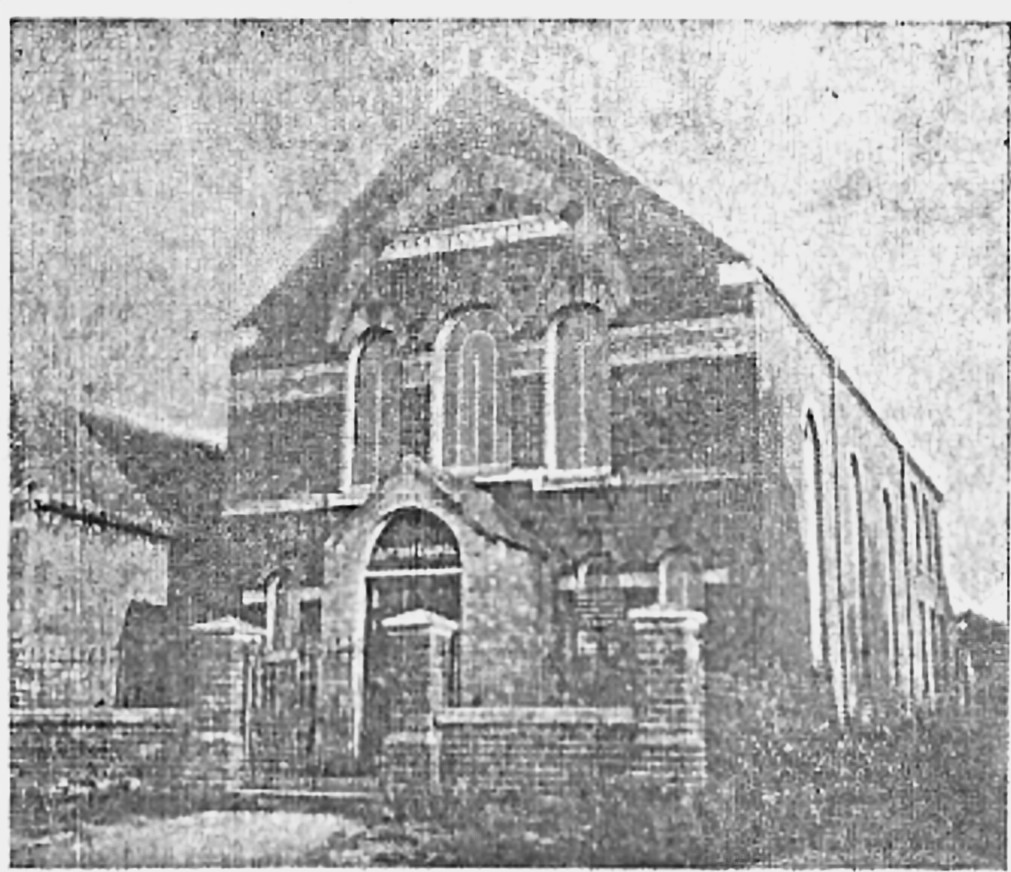
The Present Church
Souvenir Programme
Price 1/6
THE TRUTHS FOR WHICH MORTON BAPTIST CHURCH STANDS
1. The Universality of God (not confined to Temples)(A study lead only—John 4. 19-26, Gen. 28. 10-22, Mark 13, 1-2, Luke 21. 5-6, Acts 7. 46-50, 17. 24-25, Heb. 9. 24)
2. (Theology) The Authority of Christ in Word and Saving Grace(John 14. 6-7, 3.16, 34-36, Acts 4. 12)
3. (Religious) The Open Bible as the Word of God(John 5. 39-40, 1, 1-14, Mark 7. 6-9, 13)
4. (Political) Freedom of Conscience, Christ before the State(John 8. 31-32, Acts 4. 19-20, 5. 27-32, 26. 2, 24-26)
5. (Ecclesiastical) The Priesthood of ALL Believers in Practice(Rev. 1. 5-6, John 4. 23-24, Eph. 3. 11-12)
6. (Devotional) Worship is Spiritual. No Charms or Superstitious Powers can Save(John 4. 23-24, Acts 17. 22-28, Eph. 4. 1-6, 23-32, 6. 10-17, 1. Cor. 11. 23-29)
7. (Individual) Baptism of Believers only by Immersion(Matt. 3. 13-17, Acts 8. 12-13, 36-39, 19. 4-5) etc.
8. (Social) The Church – The Body of Christ – is the Company of Those who Believe IN Him(John 17. 20-23, Eph. 4. 4-16, 1. Cor. 12) etc.
TO ALL OUR FRIENDS IN JESUS CHRISTGREETINGS from
The Minister
Rev. Clifford Letts, “Sunnyside,” Morton, Bourne, Lincs.
Secretary
Mr. Tom Pridmore, “Dunromin,” Station Road
Deputy Secretary
Mr. G. E. Scotney, Bourne Road
Treasurer
Mrs. J. J. Briggs, Station Road
Deacons
Mr. Tom Pridmore, Mr. G. E. Scotney, Mrs. C. Letts,Mr. Edward Baker, Mr. T. Bradford
Organists
Mrs. C. Letts, Mrs. T. Pridmore, Mr. C. Baker,Miss M. Scotney
Tea Committee
Mrs. J. J. Briggs (Convenor), Mrs. C. Letts, Mrs. W. Turner,Mrs. G. Cook, Mrs. H. Newton, Mrs. G. E. Scotney, Miss E. Scotney, Mrs. A. R. Porter, Mrs. D. Clarke, Mrs. F. Branch
Missionary Secretary
Miss M. Scotney
Teachers
Rev. Clifford Letts, Miss E. Scotney
Caretaker
Mrs. F. Branch
MORTON BAPTIST CHURCH
These celebrations are limited to the commemoration of a milestone in the religious life of Morton, and in particular, to a crowning event in the local struggle for religious freedom, especially of worship, namely, the erection of the first Baptist Chapel in Morton.
This was opened on Sunday, June 21st, 1846.
This local struggle was but a belated part of the determination for the truth, waged ever since the early Church erred in the middle of the Second Century, when sacerdotalism revived, and this new priestcraft, seeking powers within the Roman State, compromised, and turned the Church into a secular power, rather than a spiritual force. It copied the local heathen forms and practices, read into them Christly virtue and thus arose a tradition of man. So gradually the teaching of the Church was made more convenient to man’s less spiritual mode of life, and the powers of the saving Gospel of Jesus for mankind were vested into the hands of national or political priesthoods, who reigned by their own human weaknesses, over the enforced ignorance of the peoples. So history’s pages are shamed.
For the first two centuries, the early Church, following the example and command of Jesus, (Matt. 3, 13-17 and 28, 19-20) was without question Baptist. The early Bishops of Rome were also Baptist. Then came the break, followed by man’s decrees, leading to persecutions. The faithful to spiritual life, were driven out of the Church, hunted down, tortured or killed.But the torch of truth was kept burning, sometimes uncertainly, by the Montanists (156 A.D.—4th Century), the Novatians (251 A.D.—5th Century), the Donatists (311 A.D.—7th Century) and later by the Waldenses, Albigenses, Hussites, United Brethren, Anabaptists, etc. Within the secular Church itself contention was always rife. For example, BONIFACE I., Bishop of Rome (418—422) wrote to Augustine:—“Suppose I set before you an infant, and ask you whether, when he grows up, he will be chaste or a thief; your answer will doubtless be, ‘I cannot tell’. And whether, he, in that infant age, has any thoughts, good or evil; you will say, ‘I do not know’. As then, you dare say nothing either about his future behaviour or his present thoughts, what does it mean, when they are brought to baptism, that their parents as sponsors for them make answer and say to the enquiry, ‘Does he believe in God?’ — ‘He does believe!’ Do not urge to me usage or custom, but give me the reason of the thing.
”As late as 1713, to own a Bible was considered heresy, and the Word of God was publicly burned rather than it should reach the hand of the common people and so bring about a revolution in thought on all moral questions as would overturn the whole existing man-made ecclesiastical system. And even as late as 1824, Pope Leo XII condemned as impudent, that a Bible Society should strive to make “the Gospel of Christ… the Gospel of Men.
”In Morton, the struggle began soon after 1645, when law-bound religion was being challenged in this country. We read that Thomas Bond, a Baptist of Morton, and others, were bound over or fined 16 marks or about £10, for not attending the Parish Church.
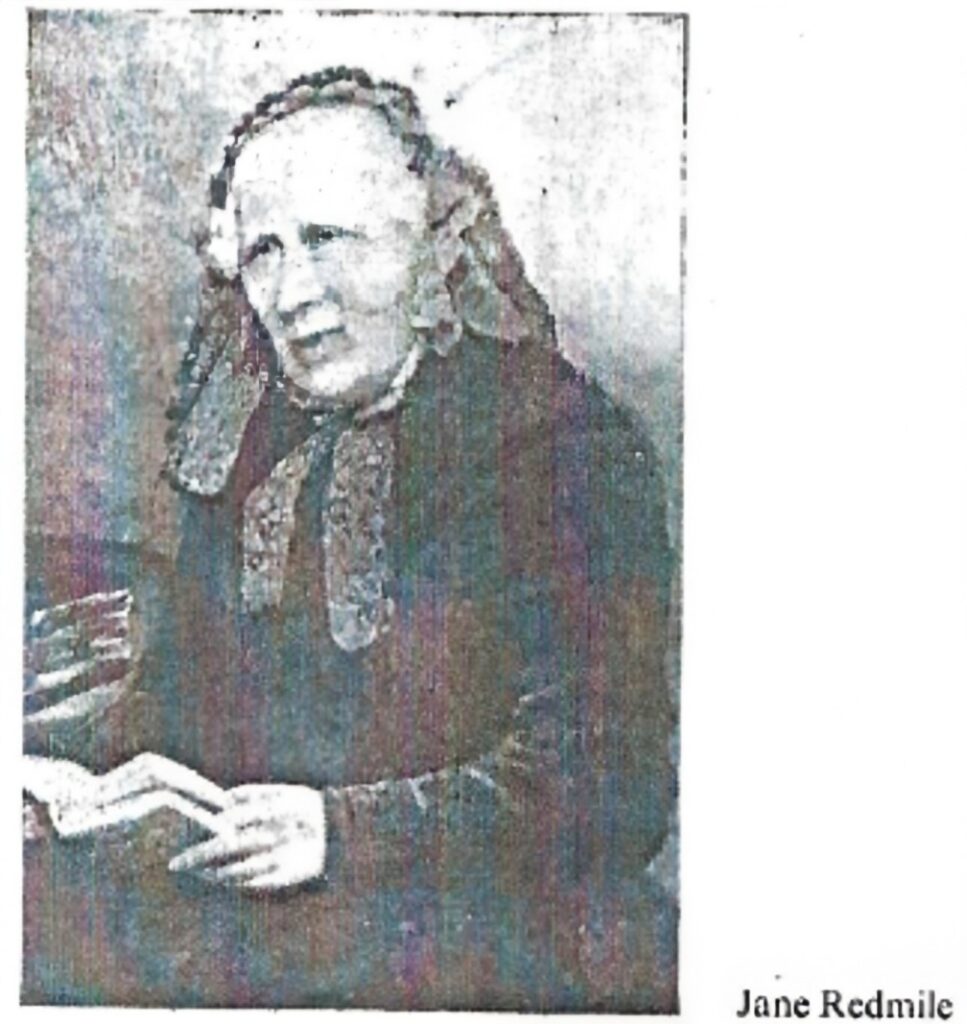
The same official fear of truth existed when a Jane Redmile of Dyke, born May 10th, 1801, and a Baptist member in Bourne from her 18th year, was attracted to Morton because “it appeared shut up in moral and spiritual darkness,” where efforts had been made “to combat its half- civilised heathendom and hold religious services in cottages or in the open-air, but had been firmly opposed by the Parson and the Squire.”
Jane was the eldest daughter of a small yeoman farmer of Dyke who was blinded when well-blasting on November 13th, 1817, when Jane was 16 years—nevertheless, Jane helped to mother the other children and open a shop to help supply their needs. Yet she found time to attend the Baptist Church in Bourne, two miles away, twice on Sundays, for School and service.
Sugar was dispensed with that a penny might be saved weekly for the mission. She tried to live on dry bread but had to give in. Nevertheless, working at night in bed she laboured by candle-light to earn a few pounds by “Down work” until so tired she fell asleep and dreaming of plucking geese, she more than once plucked her work to pieces again. At last she was forbidden to do this for fear of fire.
Ignorance was rife, so she bought a circulating library which she opened in Eastgate, Bourne. To be more effectual in teaching the truth, she set herself to learn the original Greek and Hebrew in which the Scripture was first written.
Soon Clergy and laymen of widely divergent beliefs came to seek interviews with her on some moot point but always went away wiser though beaten men. Fortunately her gentleness of nature forbade all idea of intolerance, whilst error was “smitten hip and thigh.” Her personal humility would only leave in others, a feeling of love and respect. The General Baptist beliefs were truths to her “as the breath of her nostrils”; repentance towards God; faith in our Lord Jesus Christ; the renewing work of the Holy Spirit; following the Lord as he had commanded in Baptism, as the outward and visible sign of an inward change of spirit; that ALL men were invited to take freely of the Gospel feast; that the choice lay with men to accept or reject God, in any lack of desire to listen freely, there was the fatal fact of divine election. Nor did she ever tire of spreading these truths.
Whenever a room in a cottage in Morton was obtained for preaching they were soon deprived of it. But Jane saved, and her quiet nature “bided its time.” One morning she heard that a small property, in a central position, was for sale. She was ready. She walked over and bought it.
In a few hours the Squire was with her, using all persuasion and monetary inducement to let him repurchase the property that had got past him into the hands of a dissenter. Nothing could move Jane from her purpose.
She moved to Morton—preaching, prayer meetings, a Sunday School were started. The Squire soon ceased opposition when he saw the fruits of this work in the improved morals of the village and later, Jane had “the joy of knowing that the truth at last had made him free.” As a converted man Mr Parker was changed and soon became known as one of the saints of God.
The small house soon became inadequate. Land was offered, but the others had not her enthusiasm; caution rather than enterprise ruled. So Jane accepted the burden herself.
With limited means she built a Chapel in 1846 at the back of the general stores near the green. She felt it must belong to a community, so she penned this interesting letter to the Church meeting of the West Street Baptist Church, Bourne:—
“Dyke, 11th June, 1846.“Dear Friends,“Peace be with you, and may the Lord guide you in all your consultations as will be most for His glory and the good of souls. It is with some degree of pleasure I now tell you there is a place at Morton in which the Gospel may be preached; it will be ready for use the Sabbath after next, 21st June, and I should like it to be opened then with a prayer meeting at 6 o’clock in the morning, and either two sermons by Mr. Deacon or one by Mr. Deacon, and one by Mr. Jones (if agreeable).
There are no pews and I do not know whether it should be called a Chapel. I have no objection to it being called a public house. Mr. Symonds, I hope, will be home by the 28th, and is willing to come and preach at Morton the second Sunday; and could not Mr. Deacon go too, that there might be two sermons on the two first Sundays. I should like two always and one on the week evening.
Farewell,
Yours in Gospel Bonds,
J. REDMILE.”
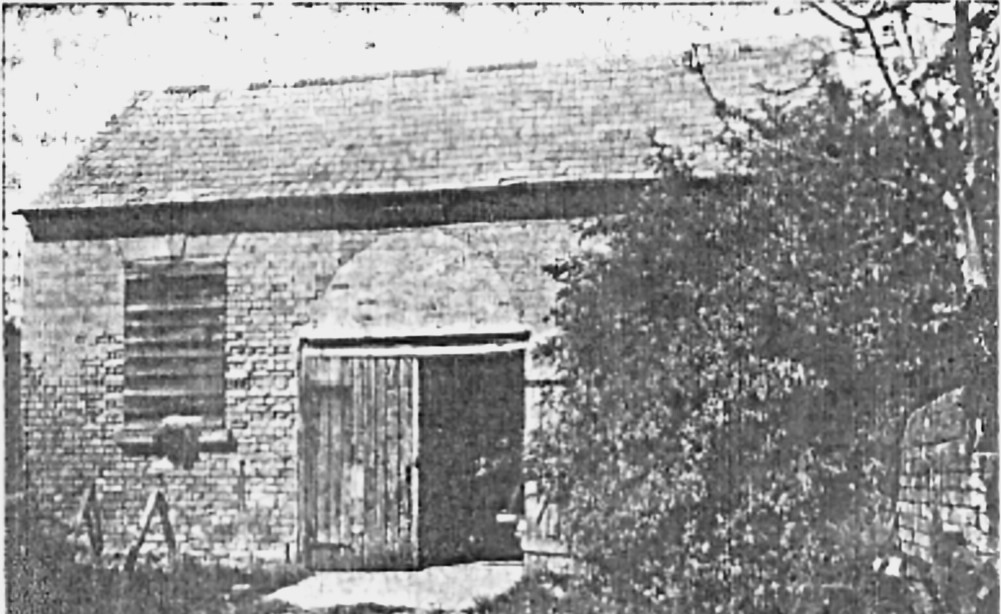
The Old Chapel, built in 1846 (Now used as a Garage)
This building continued to be used, lighted by dripping candles, until April, 1876, when a more commodious building with school rooms was opened on a Good Friday, after a very heavy snow storm had made the drifts impassable; but willing hands got to work to shovel a way through; and so 200 persons sat down to tea on this never to be forgotten occasion.
From 1871 until 1908 Mr. and Mrs. Lambert of Stainfield opened their house there for religious services and many recall the rich blessings of those meetings. In January, 1906, Mr. T. P. Allatt of Morton, reported to the Bourne Church that he had purchased a site at Stainfield for a Chapel and he offered to pay a quarter of the cost of the building and his wife a quarter of the cost of the furnishings, but the offer was never taken up.
On July 21st, 1932, the present Minister, Rev. Clifford Letts, undertook to find the money for the purchase of a private Chapel at Haconby, a mile to the north of Morton. This Chapel had been built by Mr. W. Brown in 1867, and is considered the smallest Chapel in England; unique for the fact that it has two galleries from which worshippers can shake hands across and holds over a hundred people. Pictures appeared in the national press on June 20th, 1933.
Many owe the start of their Christian life to the faithful work done in this Bethel, now in the trust of the Morton Deacons.
The names of Swift, Allatt, Deacon, Hare, Newton, Spratling, Lambert, Turner, Bradford, Belcher, Scotney, Pridmore, Baker, Briggs, stand out in the years of Baptist witness in Morton district, which, but for them, would have been spiritually very much the poorer.
William Hare was a member at Morton for 57 years and 40 years a local preacher.
Mr. Robert Newton for over 50 years a teacher by whom the people have been known to set their watches every Sunday as he came to the House of God.
Mr. T. P. Allatt, Sunday-school Superintendent at Morton for 43 years and 40 years a Deacon. The sweet, Rest-Cartwright two manual pipe organ, was the gift of Mrs. Clara Allatt, (who also served as teacher and preacher for many years) in memory of her husband who, left a trust to be used for the needy, the Sunday school, Band of Hope and Ministry, together with a Manse.
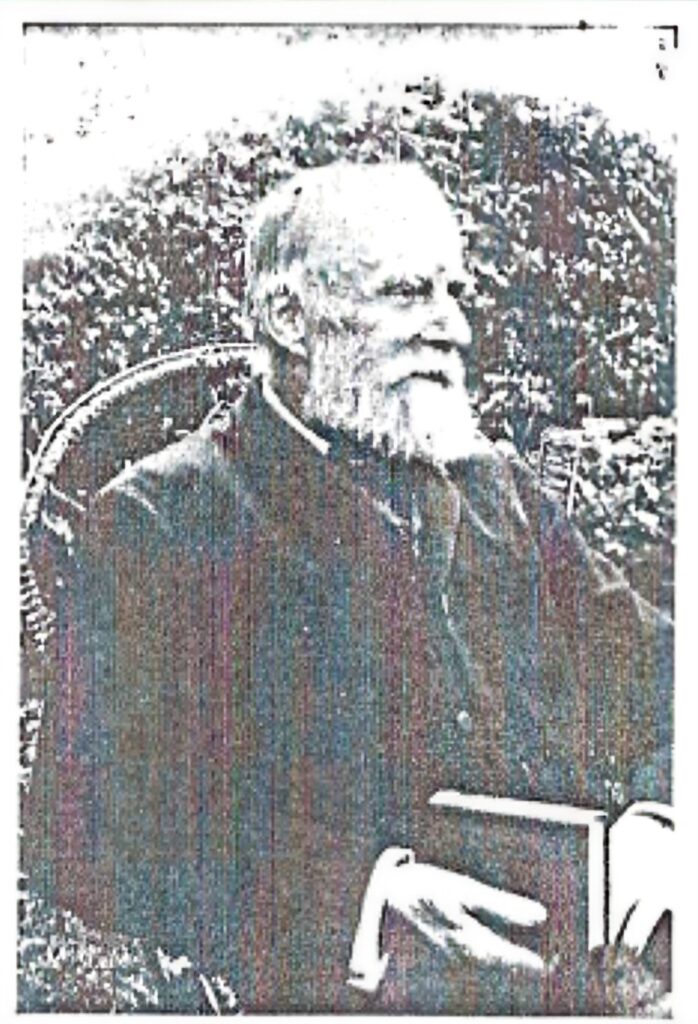
Mr. T. P. Allatt
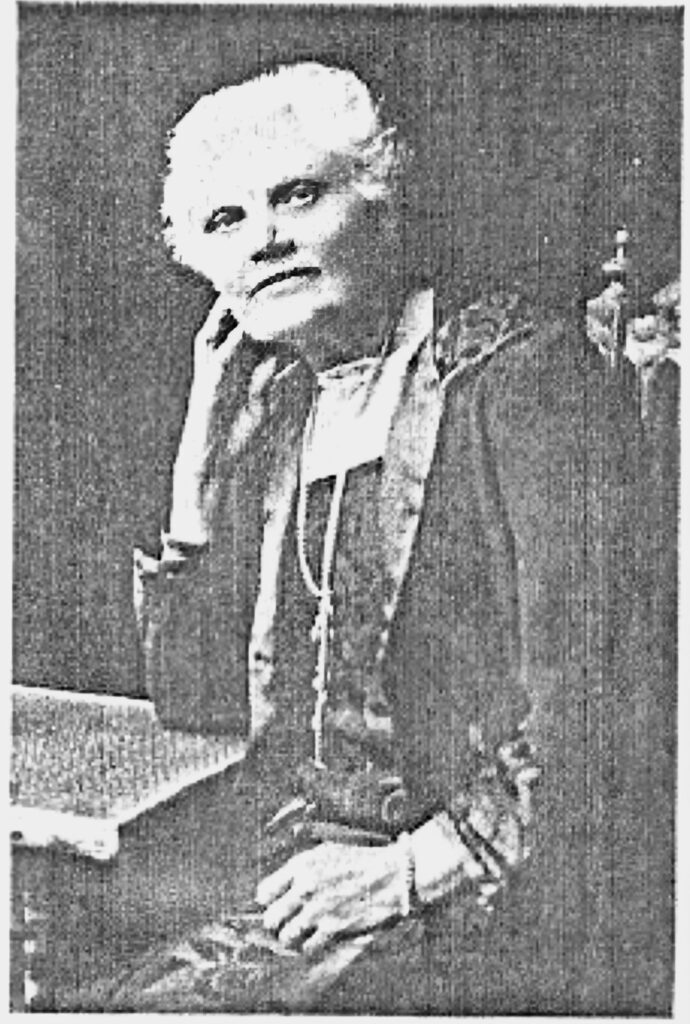
Mrs. Clara Allatt
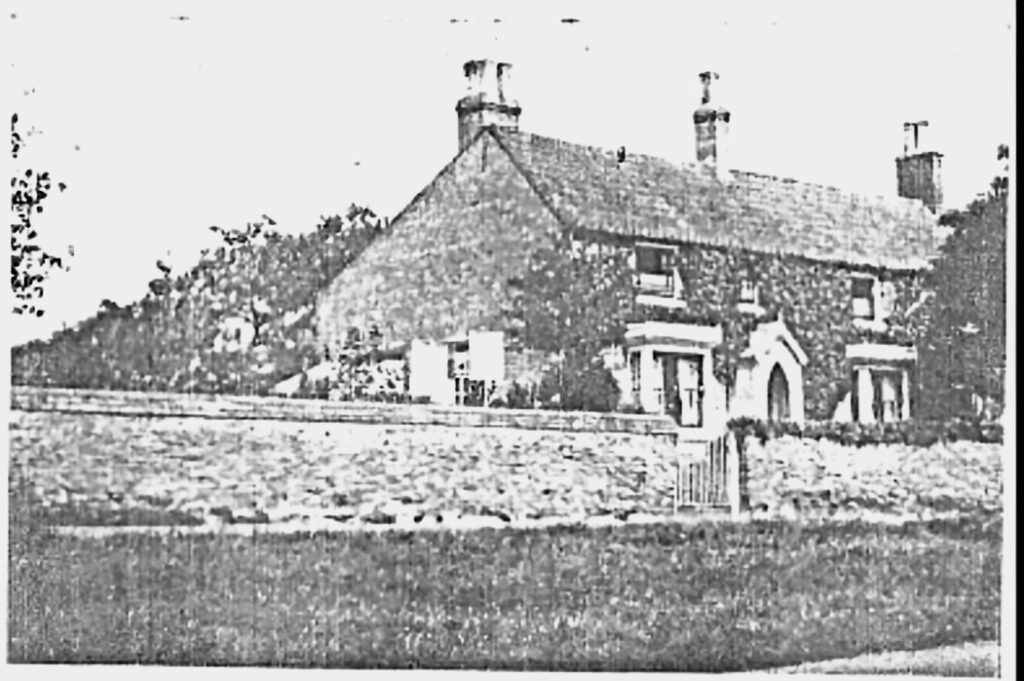
The Manse
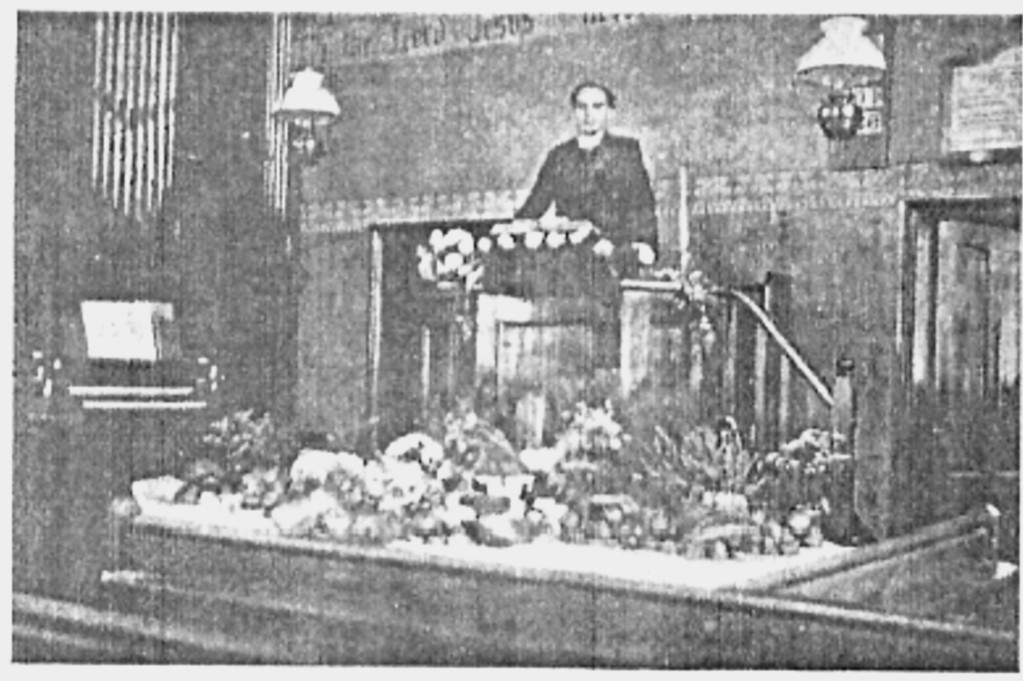
Rev. C. W. Baldwin In Morton Pulpit before modern lighting was installed
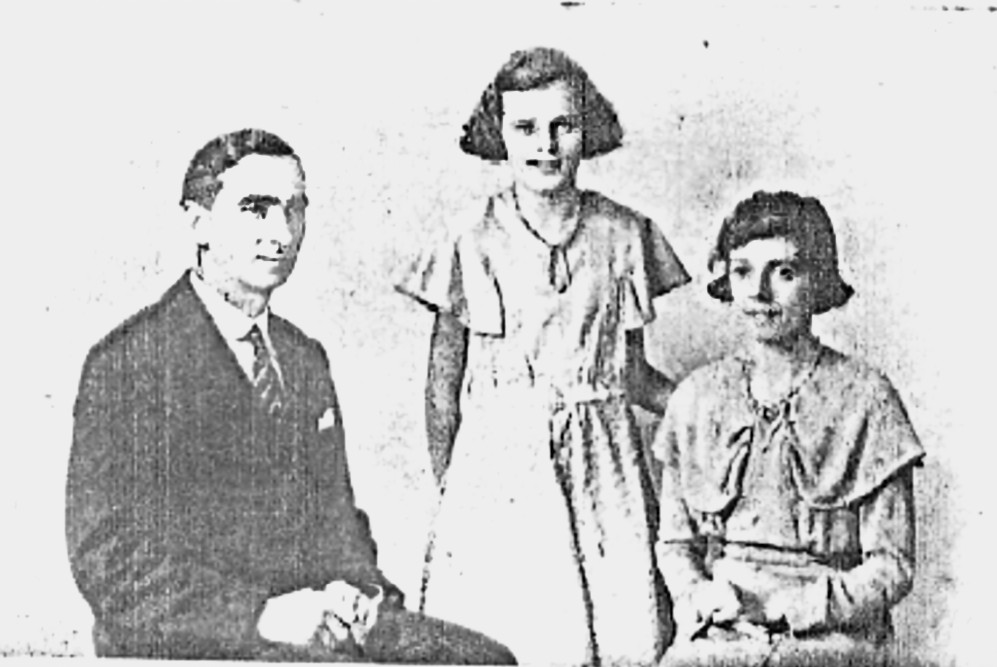
Rev. Clifford Letts, Present Minister.
Mrs Letts and Jean, their daughter
The Rev. Letts also has charge of the Dyke Baptist Church and Haconby with Morton. During his Ministry many and untold difficulties have been overcome and many crowning joys experienced.
At one time the Church had a Boys Brigade of 47 strong until his fellow Officers were no longer available. He is the President of the Lincs County Baptist Union for the year; the local area County Councillor; one of the two local Rural District Councillors, having been honoured with the Chairmanship and so became a Justice of the Peace for his year of office. In these matters the Baptist witness has been brought into public affairs and respected.
Most of this trust would have been lost but for the vigilance of the present minister.
The Ministers have been Assistant to the Ministry at West Street Bourne until the opening of the present Ministry in 1929, when the village churches have paid their own way and been governed by their own Deacons and Church meetings.
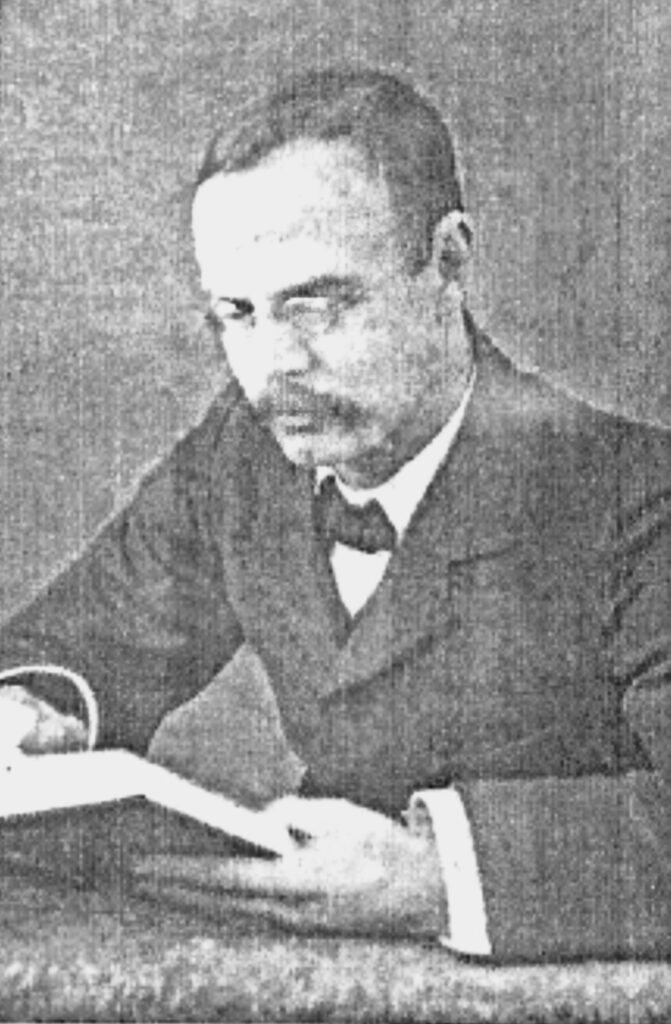
Mr. Arthur J. Orchard
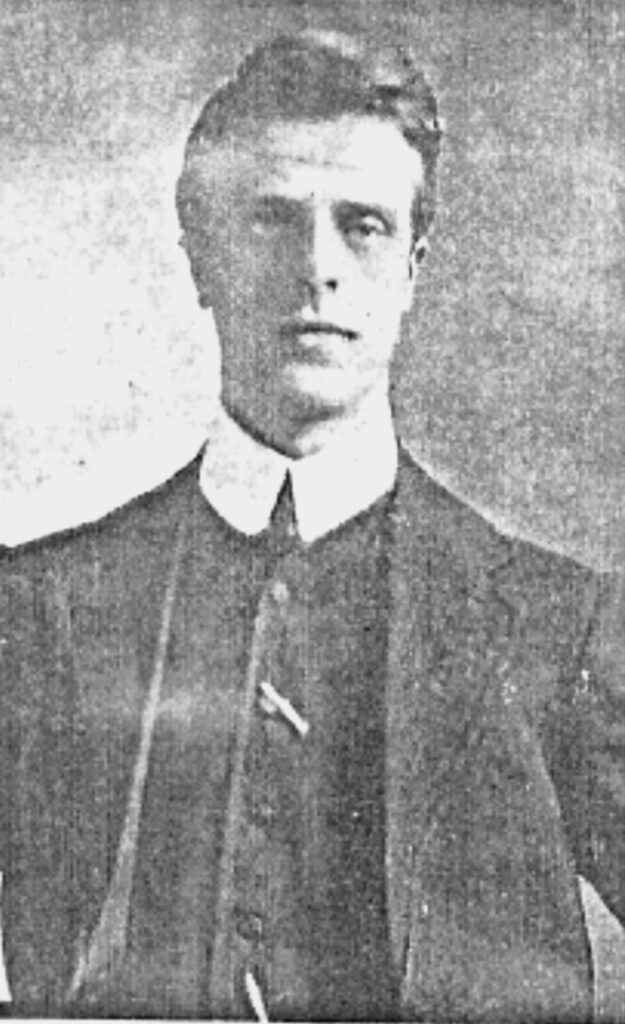
Mr. John Caven
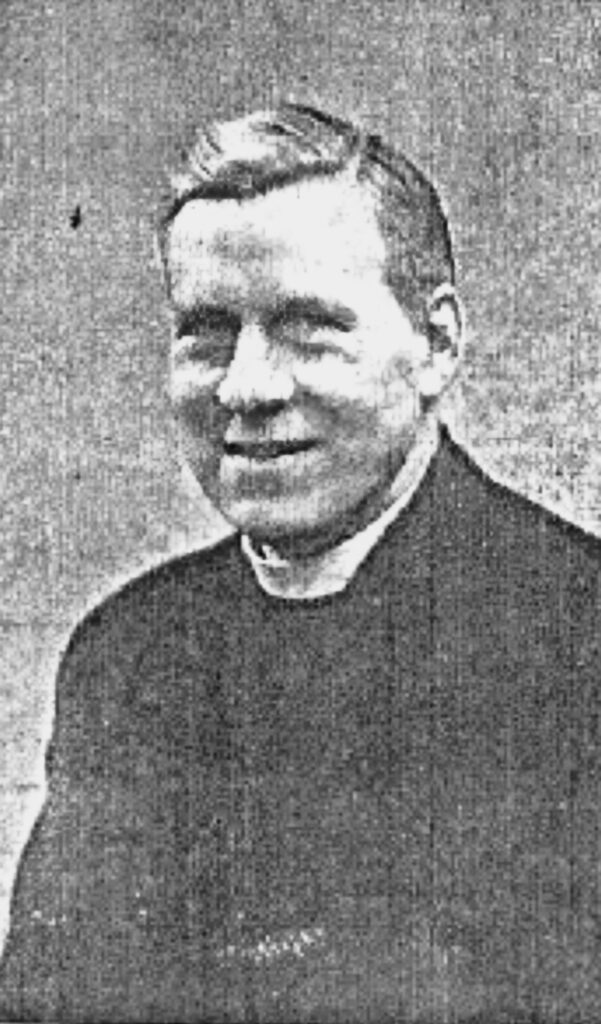
Rev. G. W. Nash.
LIST OF VILLAGE BAPTIST MINISTERS
- Rev. Joseph Hook, first Baptist Minister in the district (lived at Haconby and served Bourne and Spalding)
- Mr. Arthur J. Orchard, (Colporteur) resigned 1907
- Mr. H. J. Starling, October 29th, 1907 to 11th June, 1909
- Mr. John Caven, November 11th, 1911 to 30th July, 1913
- Mr. Falls, September 10th, 1913 to 8th February, 1917
- Rev. W. T. Barling, June 10th, 1917 to June, 1918
- Rev. G. W. Nash, March 2nd, 1919 to 27th July, 1920
- Rev. Sidney Rouse, September 26th, 1920 to 10th August, 1922
- Rev. C. W. Baldwin, November 30th, 1922 to 1925
- Rev. T. B. Clark, February 20th, 1927 to 16th April, 1928
- First Minister to have sole charge—Rev. Clifford Letts, December 1st, 1929 to present date
Attached is the will of Thomas Patchett Allat dating from 1916.
Its a stark reminder for us today that there were those who came before us that made such provision, modeling the early church…
Acts 4:32 NIV
All the believers were one in heart and mind. No one claimed that any of their possessions was their own, but they shared everything they had.
